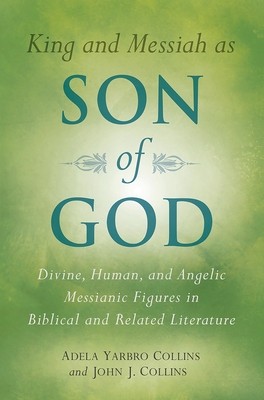
- We will send in 10–14 business days.
- Author: Adela Yarbro Collins
- Publisher: William B. Eerdmans Publishing Company
- ISBN-10: 0802807720
- ISBN-13: 9780802807724
- Format: 15.7 x 22.8 x 1.9 cm, softcover
- Language: English
- SAVE -10% with code: EXTRA
Reviews
Description
This book traces the history of the idea that the king and later the messiah is Son of God, from its origins in ancient Near Eastern royal ideology to its Christian appropriation in the New Testament.
Both highly regarded scholars, Adela Yarbro Collins and John J. Collins argue that Jesus was called "the Son of God" precisely because he was believed to be the messianic king. This belief and tradition, they contend, led to the identification of Jesus as preexistent, personified Wisdom, or a heavenly being in the New Testament canon. However, the titles Jesus is given are historical titles tracing back to Egyptian New Kingdom ideology. Therefore the title "Son of God" is likely solely messianic and not literal. King and Messiah as Son of God is distinctive in its range, spanning both Testaments and informed by ancient Near Eastern literature and Jewish noncanonical literature.EXTRA 10 % discount with code: EXTRA
The promotion ends in 17d.19:27:14
The discount code is valid when purchasing from 10 €. Discounts do not stack.
- Author: Adela Yarbro Collins
- Publisher: William B. Eerdmans Publishing Company
- ISBN-10: 0802807720
- ISBN-13: 9780802807724
- Format: 15.7 x 22.8 x 1.9 cm, softcover
- Language: English English
This book traces the history of the idea that the king and later the messiah is Son of God, from its origins in ancient Near Eastern royal ideology to its Christian appropriation in the New Testament.
Both highly regarded scholars, Adela Yarbro Collins and John J. Collins argue that Jesus was called "the Son of God" precisely because he was believed to be the messianic king. This belief and tradition, they contend, led to the identification of Jesus as preexistent, personified Wisdom, or a heavenly being in the New Testament canon. However, the titles Jesus is given are historical titles tracing back to Egyptian New Kingdom ideology. Therefore the title "Son of God" is likely solely messianic and not literal. King and Messiah as Son of God is distinctive in its range, spanning both Testaments and informed by ancient Near Eastern literature and Jewish noncanonical literature.

Reviews